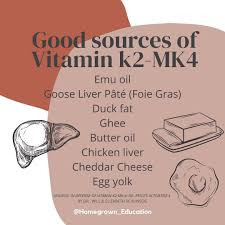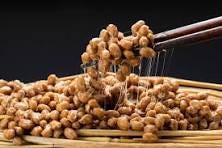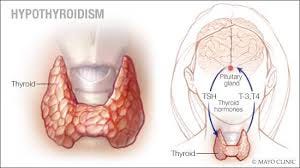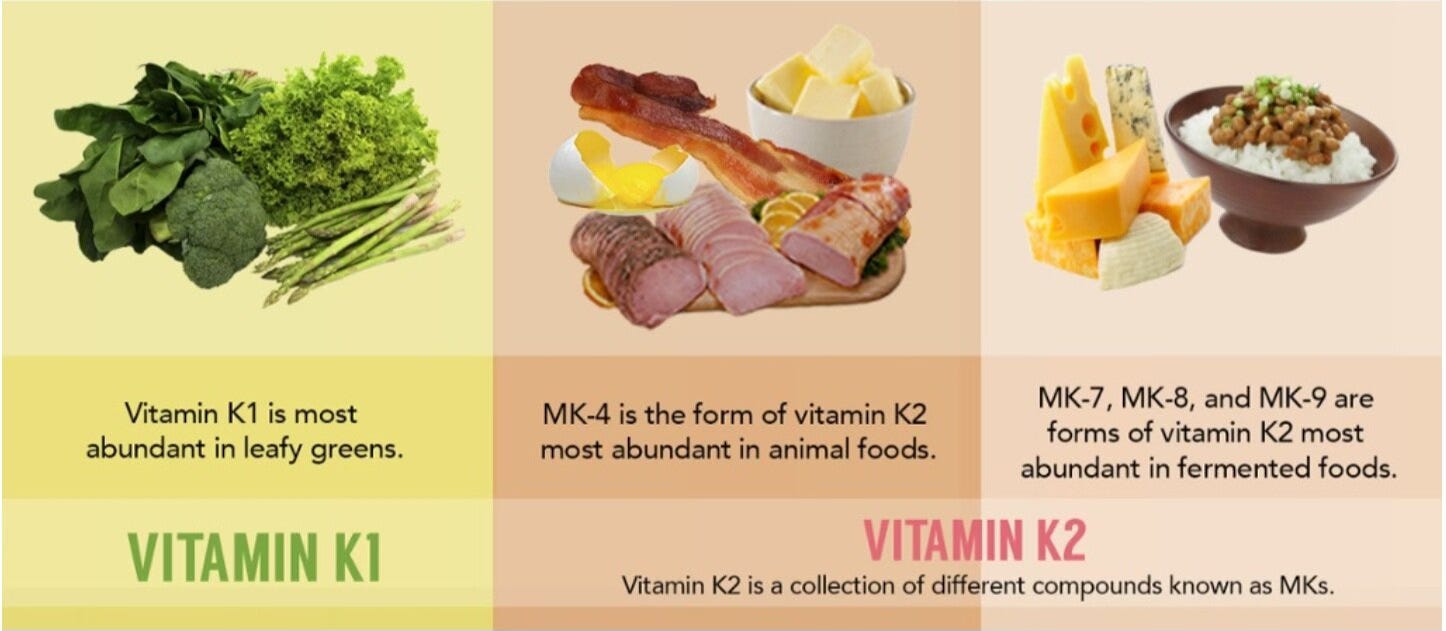What is the popular supplement “Nattokinase” derived from? Its an enzyme, sourced from fermented soybeans and is known for its capacity to break down blood clots, which may reduce heart disease and stroke risks. If you also supplement vitamin K2 - the MK-7 (soy or other legume) version - you will find it there as well. Why does it matter? Because the soybean base can be a concern for those with soy allergies.
Natto is a traditional food in Japan and other Asian countries. It’s made of fermented soybeans with a stringy/slimy texture-and a pungent smell. Many nutritionists will claim that “fermented” soy like Natto is ok and does not have the problems that raw (unfermented) soy can. So let’s talk a little about Soy. From the Weston a Price Foundation website: “Agricultural literature of the period of the Chou Dynasty (1134 – 246 BC) speaks frequently of the soybean and its use in crop rotation. Apparently the soy plant was initially used as a method of fixing nitrogen. The soybean did not serve as a food until the discovery of fermentation techniques, sometime during the Chou Dynasty. Thus the first soy foods were fermented products like tempeh, natto, miso and shoyu (soy or tamari sauce).”
Soy contains harmful substances. It has potent enzyme inhibitors that block the action of trypsin and other enzymes needed for protein digestion. Soybeans are deficient in sulfur-containing amino acids methionine and cystine and modern processing denatures fragile lysine. These inherent anti-nutrients are not completely deactivated during ordinary cooking and can produce serious gastric distress, reduced protein digestion and cause chronic deficiencies in amino acids. Soy is also high in phytic acid or phytates which block the assimilation of calcium, magnesium, iron and especially zinc. Soy has a higher phytate content than any other grain or legume that has been studied and long, slow cooking does not reduce the phytates - it is believed that fermentation is the only way to lower the phytates.
But isn’t soy great for menopausal women and hormonal “natural” estrogen products/creams? Soy isoflavones are phyto-endocrine disrupters. People eating and using it regularly can have problems with ovulation and don’t realize that these isoflavones can stimulate the growth of cancer cells. Eating as little as 4 tablespoons of soy per day can put you into hypothyroidism with symptoms of lethargy, constipation, weight gain and fatigue.
So what is the big deal of Nattokinase? Natto is fermented soy - which is good - right? Well, not for everyone. For some people, soy in ANY form is a problem. As practitioner over the years I’ve had clients who suffer from post-menopausal bleeding and possibly have their cycle return … or debilitating migraine headaches with gastric distress when they take soy. The first thing I do is ask them if they are on hormone creams and what the ingredients are. I have also seen this with Vitamin D3 supplements and others. Quite often I find Soy is the culprit. Vitamin K2 supplements sourced from MK-7 menaquinone are usually soy based as well (though they can also be from chickpeas).
Here on Substack I had a recent conversation with someone who told me “how much better” MK-7 (mostly legume/plant) is than MK-4 (animal sourced), and here is where I dare to disagree. The foundational source for the supplement can greatly matter when we talk assimilation. If you are only looking at ‘science’ it might seem that MK-7 is better - but look at the individual! As a colon therapist for over 20 years I can tell via stool when there is an over-abundance of gas and bloating. Especially when clients eat soy regularly. Many people cannot handle legumes (and certain cheeses) in general because of the proliferation of abdominal gas and discomfort. However, Vitamin K2 in the form of MK-4 (animal sourced - not plant/legume) has been shown to reduce the proliferation of rheumatoid synovial cells in vitro and in vivo models. Recently, it was found that 45 mg per day of MK-4 reduced clinical and biochemical markers of disease activity. For these reasons, MK-4 has been recommended as a new agent for the treatment of RA (Rheumatoid Arthritis) either alone or in combination with standard RA therapy. It’s interesting that those individuals with RA or arthritis in general do very well on an animal based diet - very low in carbohydrates and plant/legumes. Your K2 supplement which is MK-4 is derived from animal sources like pasture raised chicken, duck or goose liver pate, pasture raised eggs, grass raised butter or ghee, organic beef or lamb liver and EMU Oil (I use this!). It is important to understand that because K2 from Natto (MK-7 - & other plant/legume sourced) is not easy for most western people to convert - it is recommended that people consume K2 (MK-4) from animal sources as well.
If you are taking Nattokinase or MK-7 (K2 supplement) sourced from Natto - if you have a soy allergy you may experience odd symptoms. Symptoms of a soy allergy may range from mild to severe and include: abdominal pain, diarrhea/constipation, nausea, vomiting, brain fog, runny nose/wheezing or trouble breathing, itchy mouth/swollen lips, skin reactions including hives and rashes, itching/swelling - and finally - anaphylactic shock (rare in the case of soy allergies). I was reminded of this when I accidentally had a supplement with the fermented version of soy this last week. I kept telling myself it was the terrible heat that was making me feel so awful, and then I discovered the soy MK-7 (natto) ingredient. I thought I had been going crazy! 2 days after removing it I am back to normal. This is what prompted me to write this article - especially because it seems lately everyone is talking about their favorite brand of K2. I encourage you to read the ingredients and consider assimilation and possible allergies. As far as Nattokinase, there are other good products l;ikle Serrapeptase that do not contain fermented soy.
One final comment - certain medications deplete K2 or inhibit its absorption. These drugs may increase your risk of Vitamin K2 deficiency: Statins, Broad Spectrum Antibiotics, Bile Acid medications, Orlistat (a weight-loss drug (Alli)- reduces absorption of fat-soluble vitamins-Including Vit.K.
Wendy McPhail, CNC, NBCCT, FDN,
ADAPT Functional Health Coach
Weston A. Price Chapter Leader
www.nethersprings.com







I read on the Weston Price Foundation that MK4 is the only kind of K2 that can be stored by the body—MK7 cannot be stored. Storage seems important. You can buy supplements that have only MK4–that’s what I use.
Interesting! I agree that animal products are superior in general. So it makes sense that the K2 from animals would be more easily absorbed. And I avoid soy as much as possible.
I was reading a post by Sarah Pope, The Healthy Home Economist, today. She makes natto with mung beans in order to avoid soy. I was considering trying that primarily for getting soil borne probiotics through food rather than supplementation. But I need to research that a bit more.
There is always so much more to learn!